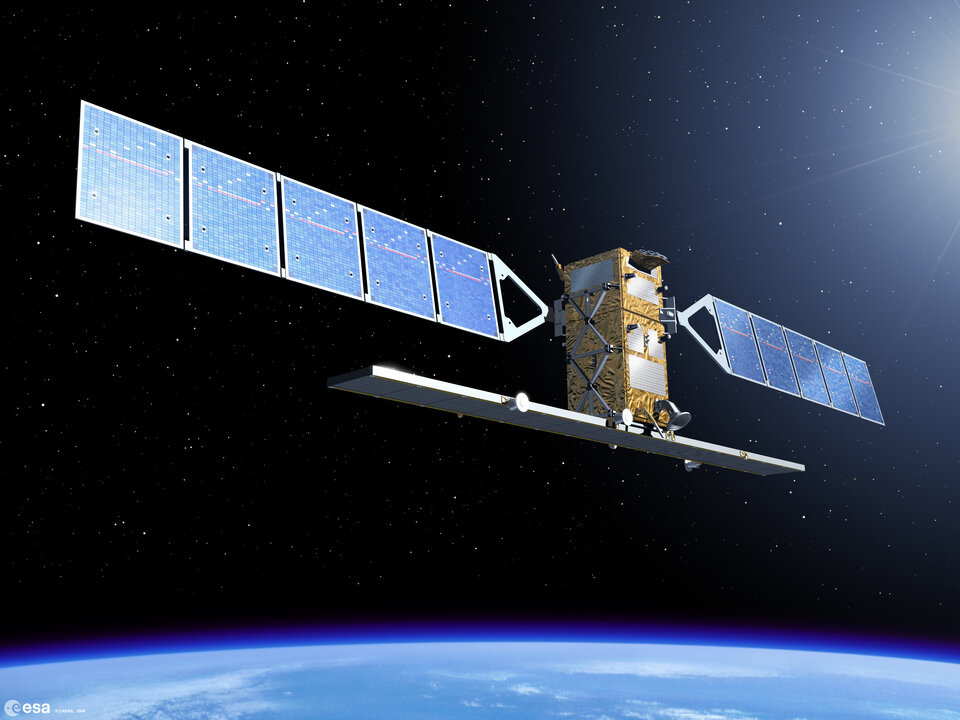Taking action for GMES
Representatives from the areas of economy, health, energy, agriculture, climate change, disaster management and key decision makers gathered in Copenhagen, Denmark, this week to show their support for the GMES Global Monitoring for Environment and Security programme.
The GMES in Action conference gave participants an opportunity to explore the economic, environmental and social benefits of Europe’s GMES programme.
Through GMES, decision-makers will have access to reliable, timely and accurate information services to manage the environment, understand and mitigate the effects of climate change and ensure civil security.
The programme will rely heavily on data provided by the upcoming Sentinel family of satellites, which will provide a solid basis for the implementation of relevant European and national policies.

In his opening remarks on Monday, ESA's Director of Earth Observation Programmes Volker Liebig touched on the pressing question of the future of the GMES budget.
"We are only 15 months away from the planned launch of the first Sentinel satellite, but we don’t know yet if there will be funding for operating the satellites beyond 2014," said Prof. Liebig.
Indeed, the future of GMES has been shaky since the European Commission proposed funding for GMES outside the Multiannual Financial Framework (2014-2020) through an intergovernmental mechanism.
During the conference’s introductory session, Member of European Parliament Anne Jensen, however, stressed that GMES should be financed within the EU budget, noting that the price is small compared to the benefits of the programme and there is no risk of cost increase.
"The estimate is that €5.8 billion are needed for 2014-2020 – less than 0.5% of the EU budget. The budget is only 1% of the EU economy," she said.
"The return on investment is impressive. Each €1 invested will generate €4 in return," said Paul Weissenberg, Deputy Director General of the European Commission, DG Enterprise and Industry.
He added: "GMES must continue, and GMES will continue."

Other speakers considered a return of up to ten times the investment.
Also speaking at the opening of GMES in Action was Morten Østergaard, Danish Minister of Science, Innovation and Higher Education, who also backed funding the programme:
"If we are to harvest the full potential of GMES, we need long-term funding."
During the two-day conference, discussions were held on how GMES will contribute to European growth and generate jobs. Other contributions of GMES are in energy and sustainable development, agriculture and ecosystems, health, emergency management, supporting the green economy and monitoring climate change.
Presentations were given by both service providers and potential users on what is expected from the programme.
Concluding the conference on Tuesday, the head of ESA’s GMES Space Office Josef Aschbacher stressed the importance of moving GMES ahead, especially to ensure the continuity of Earth-observation data for the international user community.
One central outcome of the meeting is a resolution on the future of GMES. The 'Copenhagen Resolution' outlines the programme’s objectives, potential and requirements to move forward, such as an adequate governance model, data policy and long-term financial commitment.















 Germany
Germany
 Austria
Austria
 Belgium
Belgium
 Denmark
Denmark
 Spain
Spain
 Estonia
Estonia
 Finland
Finland
 France
France
 Greece
Greece
 Hungary
Hungary
 Ireland
Ireland
 Italy
Italy
 Luxembourg
Luxembourg
 Norway
Norway
 The Netherlands
The Netherlands
 Poland
Poland
 Portugal
Portugal
 Czechia
Czechia
 Romania
Romania
 United Kingdom
United Kingdom
 Slovenia
Slovenia
 Sweden
Sweden
 Switzerland
Switzerland
































